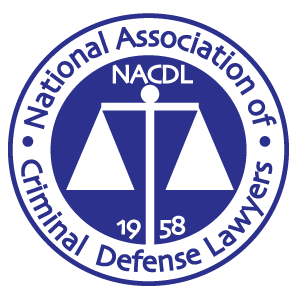Rule 32 Post Conviction Relief in Arizona
If you have been convicted of a misdemeanor or felony crime in Arizona via a jury decision or plea bargain, you still have options for petitioning the verdict. Arizona law allows for what is called Rule 32 Post Conviction Relief proceedings for a defendant who wishes to challenge a guilty verdict rendered against them in a court of law throughout the state. You can exercise your Rule 32 Post Conviction Relief rights in the following circumstances:
- You pled guilty by entering into a plea agreement
- You admittedly violated a condition of probation
- You have already filed an appeal with the proper appellate court but your appeal was denied
Due to the highly technical nature of challenging your original conviction or sentence, you should consult an experienced, reputable defense attorney to help you navigate the Rule 32 post conviction relief process in Arizona. This includes retaining an aggressive defense attorney in Phoenix AZ who will fight to make sure your rights are upheld throughout the entire process.
Are Rule 32 and an Appeal the same Things?
Simply stated, no they are not. However, some overlap does exist, especially when you are filing a Rule 32 post conviction relief petition because your initial petition to the appellate court was denied.
- If you were found guilty by a jury of your peers, then your first step will always be to file an appeal if you feel one or more of the reasons for an appeal apply to your case. If the appeal is denied, then Rule 32 can be used as another avenue of petitioning that will look at some of the same factors appeals do, but will be looked at in a different court than your initial appeal.
You can stand to benefit the most from a Rule 32 petition if you entered into a plea bargain instead of being found guilty by a jury in Arizona.
- For example, if you feel that either your attorney or the prosecution made errors during the plea bargaining phase of your trial, you can file a Rule 32 petition to challenge the legality of the plea bargain. If you are successful, then the district attorney’s office will re-file the original charges against you and a new plea bargain will be negotiated.
Unlike an appeal, where you can petition for terms up to and including a full acquittal of the charges, a Rule 32 will only apply during the phase where an error occurred (such as the sentencing phase of your original trial).
- There does exist the possibility that during the re-bargaining phase, you could receive a different sentence, but it is important to understand there is absolutely no guarantee of this happening
You can also exercise your Rule 32 post conviction relief rights if you entered into a plea bargain, but afterward newly discovered evidence comes to light that could exonerate you from the crime.
- Since you pled guilty and plea bargained before the new evidence was found, you are not eligible for an initial appeal through the appellate court system, but you can exercise Rule 32 instead
Changes to Rule 32 in the Arizona Legal System
Rule 32 has undergone some significant changes over the past 20 years that affect how post-conviction relief functions. Until 1997, the prosecution was tasked with the burden of proving that a defendant did not act in a justifiable manner when committing an act the state prosecuted as a crime.
- For example, using deadly force to protect yourself
In 1997, the law was changed to shift the burden of proof on the defendant instead of the prosecution. This means that if you were charged with voluntary manslaughter even though you claimed it was self-defense, the assumption by the courts was that it was not. Therefore, the burden was on you and your attorney to prove that it actually was. However, in 2006, the law was revised once again to place the burden of proof back on the state
- So anyone found guilty of manslaughter between 1997 and 2006 that claimed self-defense could file a Rule 32 petition. In these cases, a judge will review the initial case to determine whether or not the defendant might have received a better outcome if the case was tried with the current law in place.
Again, even a favorable Rule 32 post conviction relief outcome does not necessarily mean a case will be overturned entirely, or that a defendant will be acquitted. However, obtaining a favorable Rule 32 outcome can potentially help reduce a sentence, or bring other factors to light that might assist you.
Trust Laboy Law Defense Attorney in Phoenix AZ
The Rule 32 post conviction relief process can be very technical and time sensitive. Because of this, it is essential to consult a defense attorney in Phoenix AZ with proven experience filing and defending post-conviction relief cases. We will not stop fighting for your rights, by making sure that they are being upheld throughout the entire Rule 32 process. If you are looking for an aggressive, experienced defense attorney in Phoenix AZ to help you navigate your way through the post-conviction relief process in Arizona, contact us today for a private, no obligation consultation at 602-777-3368.








